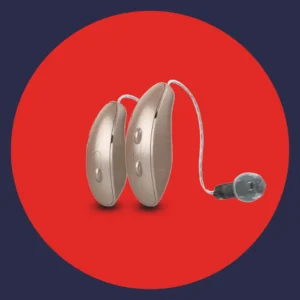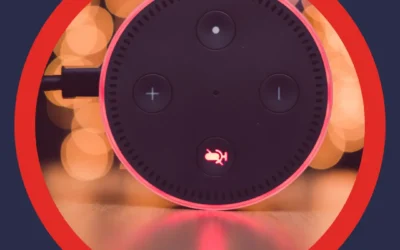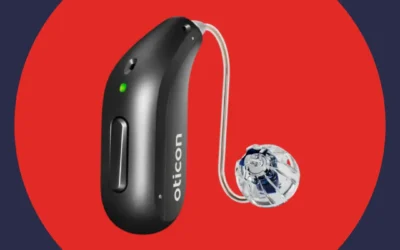Tinnitus is the perception of sound when no external source is present. Many people describe it as ringing, buzzing, hissing, clicking, or roaring in one or both ears. For some, it is occasional and mild. For others, it is constant, loud, and overwhelming.
It is a common condition, affecting 10% to 15% of adults in the U.S. The severity varies, but about half of those with tinnitus find it disruptive. Around 1% report that tinnitus severely interferes with daily life.
For people with bothersome tinnitus, the condition can cause:
- Difficulty concentrating
- Sleep disruption
- Emotional distress and anxiety
- Social withdrawal and isolation
The impact goes beyond annoyance. Over time, tinnitus can affect mental health, social relationships, and overall quality of life.
The Strong Connection Between Tinnitus and Hearing Loss
Tinnitus and hearing loss often occur together. Research shows nearly 90% of people with tinnitus have some degree of hearing loss. This link is not coincidental.
When hearing declines, the brain receives less sensory input from the ears. To compensate, it increases activity in its hearing centers — a process that can generate the phantom sounds of tinnitus. This change in brain activity is often referred to as neural overcompensation.
Some researchers also believe tinnitus is linked to abnormal patterns in how the auditory cortex communicates with other brain networks. In both theories, reduced sound input plays a central role.
If you have tinnitus, you may also have undiagnosed hearing loss. A professional hearing evaluation is the first step toward understanding your situation.
Explore more in, Where Can I Get a Free Hearing Test Near Me?
Can Hearing Aids Help With Tinnitus?
Yes — research strongly supports that hearing aids can help reduce tinnitus symptoms for many people. While they are not a cure, they can significantly lessen the perception and impact of tinnitus, especially in people who also have hearing loss.

The Clinical Evidence
1. Long-Term Relief With Hearing Aid Use
A study published in PMC followed 19 patients with chronic tinnitus and untreated sensorineural hearing loss for six months. The results showed clinically and statistically significant improvements in:
- Tinnitus Handicap Inventory (THI) scores — a measure of tinnitus impact
- Visual Analog Scale (VAS) scores — a measure of perceived annoyance
- Minimum Masking Level (MML) — the softest sound level that masks tinnitus
The study concluded that hearing aids are a valuable treatment strategy for chronic tinnitus relief in patients with hearing loss.
2. Broad Review of Hearing Aid Effectiveness
A scoping review of research examined studies on hearing aids and tinnitus relief published after 2011. The review found:
- 68% of studies showed positive results for hearing aids in tinnitus relief
- 14% found no change
- Study quality varied, but overall evidence supports hearing aid use
This review highlights that while results vary, the majority of research supports hearing aids as a helpful tool for managing tinnitus.
3. Subclinical Hearing Loss Benefits Too
Traditionally, hearing aids were mainly recommended for people with clinical hearing loss. But a 2023 study in the Journal of Clinical Medicine challenged that limitation.
Researchers compared tinnitus relief in people with clinical hearing loss to those with subclinical hearing loss (mild or “hidden” loss not meeting the standard threshold). After three months of hearing aid use:
- Both groups experienced clinically significant reductions in tinnitus distress
- Improvement levels were nearly identical
This finding suggests hearing aids may help even if hearing loss is mild or borderline.

4. Tinnitus Sound Support Features Improve Outcomes
A controlled trial published in Frontiers in Audiology and Otology tested hearing aids with built-in tinnitus sound support features over a 12-week period.
Results showed:
- Significant reductions in Tinnitus Functional Index (TFI) scores
- Similar improvements for both new and experienced hearing aid users
These findings suggest that tinnitus-specific hearing aid programs enhance relief for many people.
5. Hearing Care Professionals’ Perspective
A survey of U.S. hearing care providers found:
- 60% of tinnitus patients get some relief with hearing aids
- 22% experience major relief
- Less than 2% report worsening symptoms
These statistics reflect real-world experience, reinforcing clinical trial results.
How Hearing Aids Reduce Tinnitus Symptoms
Hearing aids can help in several interconnected ways:
Restoring Auditory Input
Amplification increases the amount of sound reaching the brain, reducing its need to “fill in the gaps” with phantom tinnitus sounds.
Masking the Tinnitus
Environmental sounds amplified by hearing aids can partially mask tinnitus, especially in quiet situations where it is most noticeable.
Brain Recalibration
Consistent sound input may help retrain the brain to deprioritize tinnitus signals, reducing their perceived intensity over time.
Integrated Sound Therapy
Modern hearing aids offer built-in tinnitus therapy features, such as white noise, pink noise, or nature sounds. These can be customized to your comfort and hearing profile.
Stress Reduction
By improving hearing and reducing listening fatigue, hearing aids can lower stress — a common tinnitus trigger.
The Neurological Explanation
The brain’s auditory system thrives on consistent input. When hearing loss disrupts that input, neural pathways become hyperactive. This hyperactivity is believed to generate the perception of tinnitus.
Hearing aids restore a more normal flow of sound, which:
- Reduces neural hyperactivity in the auditory cortex
- Encourages normal signal processing
- Promotes neuroplastic changes that help the brain “tune out” tinnitus
Over time, this consistent stimulation can shift tinnitus from the foreground of your awareness to the background, where it becomes far less noticeable.
Modern Hearing Aid Technologies for Tinnitus
Today’s hearing aids go far beyond simple amplification. New technologies make them even more effective for tinnitus relief:
- AI Sound Personalization — Uses artificial intelligence to adapt sound processing to your environment and tinnitus profile.
- Smartphone App Control — Lets you adjust tinnitus therapy sounds anytime for maximum comfort.
- Combination Devices — Integrate hearing amplification with tinnitus masking in one device.
- Streaming Capability — Connects directly to your phone so you can stream sound therapy apps, music, or relaxation tracks.
- Rechargeable Batteries — Keep therapy active all day without interruptions.
Who Should Consider Hearing Aids for Tinnitus?
You may be a good candidate if you:
- Have hearing loss (even mild) with persistent tinnitus
- Find tinnitus interferes with concentration, sleep, or emotional well-being
- Want a non-invasive management option
- Are committed to daily, consistent use
If you are unsure, learn more about hearing loss and schedule a professional hearing test.
What to Expect When Trying Hearing Aids for Tinnitus
Adjustment Period
Your brain needs time to adapt to new sound input. Improvement often happens gradually over weeks or months.
Consistent Use Matters
Daily wear maximizes benefits. Occasional use may not produce noticeable relief.
Personalized Programming
Your hearing care provider can fine-tune amplification and tinnitus therapy settings for optimal comfort and effectiveness.
Insurance and Coverage
Hearing aids can be a worthwhile investment in your hearing health and quality of life. You may have coverage that offsets costs.
Discover more here in Hearing Aid Insurance Benefits.
Complementary Approaches to Tinnitus Management
Hearing aids are often part of a broader management plan that may also include:
- Sound Therapy — Using devices or apps to mask tinnitus.
- Cognitive Behavioral Therapy (CBT) — Helps reduce the emotional burden of tinnitus.
- Tinnitus Retraining Therapy (TRT) — Combines sound therapy with counseling.
- Lifestyle Changes — Stress management, healthy sleep, and avoidance of triggers.
Learn more in Can You Get Rid of Tinnitus?
Why Early Treatment Matters
Leaving tinnitus and hearing loss untreated can worsen symptoms over time. Early intervention can:
- Preserve communication ability
- Reduce emotional strain
- Prevent long-term brain changes linked to sound deprivation
- Improve overall quality of life

Key Takeaways From the Research
- Hearing aids can help with tinnitus for many people
- Benefits are seen in both clinical and subclinical hearing loss
- Integrated tinnitus therapy features enhance results
- Consistent, daily use is key
- Hearing aids should be part of a comprehensive management plan
Take the Next Step
If you have tinnitus and possible hearing loss, the best first step is a comprehensive hearing evaluation.
American Hearing + Audiology offers full hearing testing, advanced hearing aid technology, and personalized tinnitus solutions.
Contact American Hearing + Audiology today to find out if hearing aids could help you.



